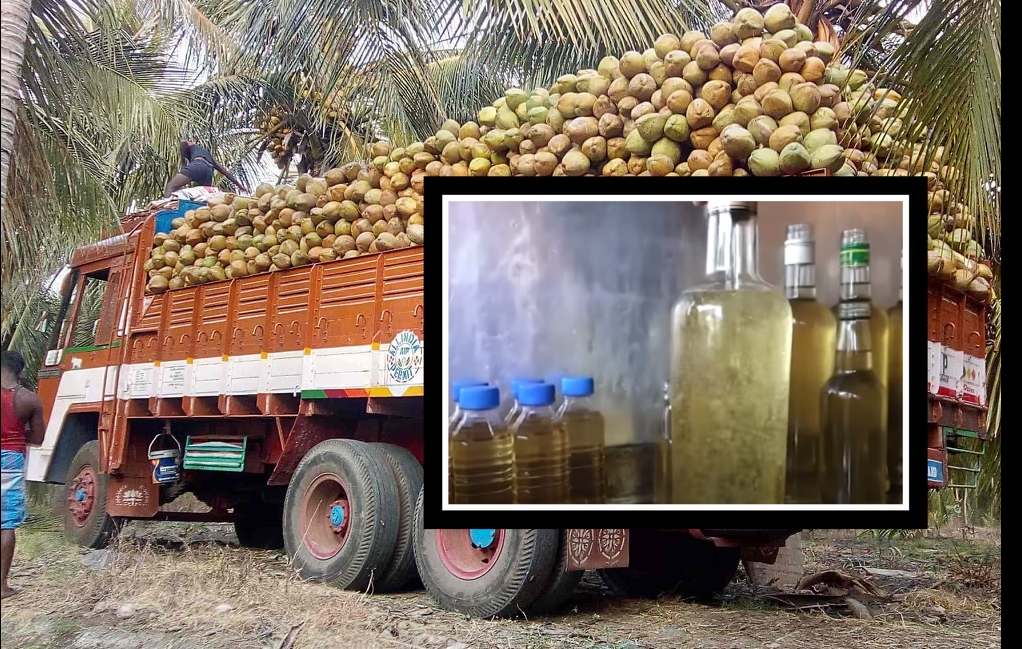The current stock of coconut oil that is in the country will be enough to meet consumer needs for only one week.
Raising the red flag on another looming crisis, the President of the Coconut ManufacturersAssociation Neomal Perera said that at the moment there are only around 4000 metric tonsof coconut oil in the country.
The shortage will not only affect domestic consumption but also impact on the production of bakery items and other foods such as noodles,causing shortages and price hikes. One litre of coconut oil is predicted to retail at about 1000 rupees in the coming days.
Sri Lanka needs around 20, 000 metric tons of coconut oil for a month, which averages at around 4000 metric tons a week.
Although he did not give names, Mr Perera said the crisis had been wilfully precipitated. ‘This situation is unprecedented because it is the first time in this country’s history’, he said.
Mr Perera expressed frustration with the slow pace at which the coconut oil industry functionsand the impediments. ‘When we import unrefined oil it takes weeks for the tests to be carried out because there aren’t enough staff in the Coconut Board and there are also no standards’. The importer also has to pay demurrages of US$ 12, 500 for every day the ship is in the port. There are about nine companies which imports unrefined oil.
He also said that no steps have been taken to import oil. ‘At a practical level, we will need a ship to import the oil from Malaysia or Indonesia and by the time it arrives in the country and the oil is distributed it will be around mid-May’.
There is however a glimmer of hope after a shipwith a consignment of unrefined oil was released from the port in the last few daysalthough it could be weeks before the oil is available in the market.
The production of coconut oil in the country is hamstrung because of insufficient coconut production. The country’s deficit in coconuts, which has been growing since the mid 1980’s, stands at around 1. 5 billion coconuts. The situation has been exacerbated because no medium and long term measures have been taken over the years to ensure that coconuts are grown in a sustainable manner.
Following the Aflotoxin debacle last month, the government banned the import of palm oil but later said that food producers who use it in their products can import it.





